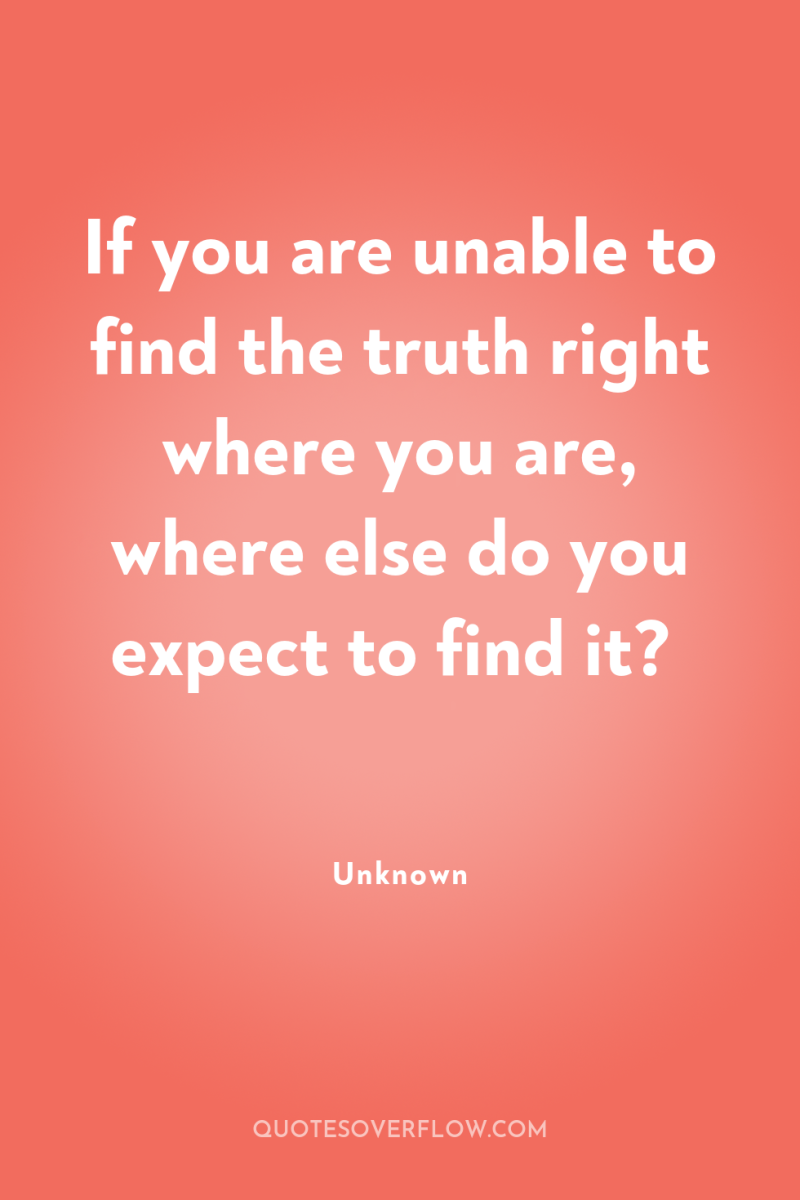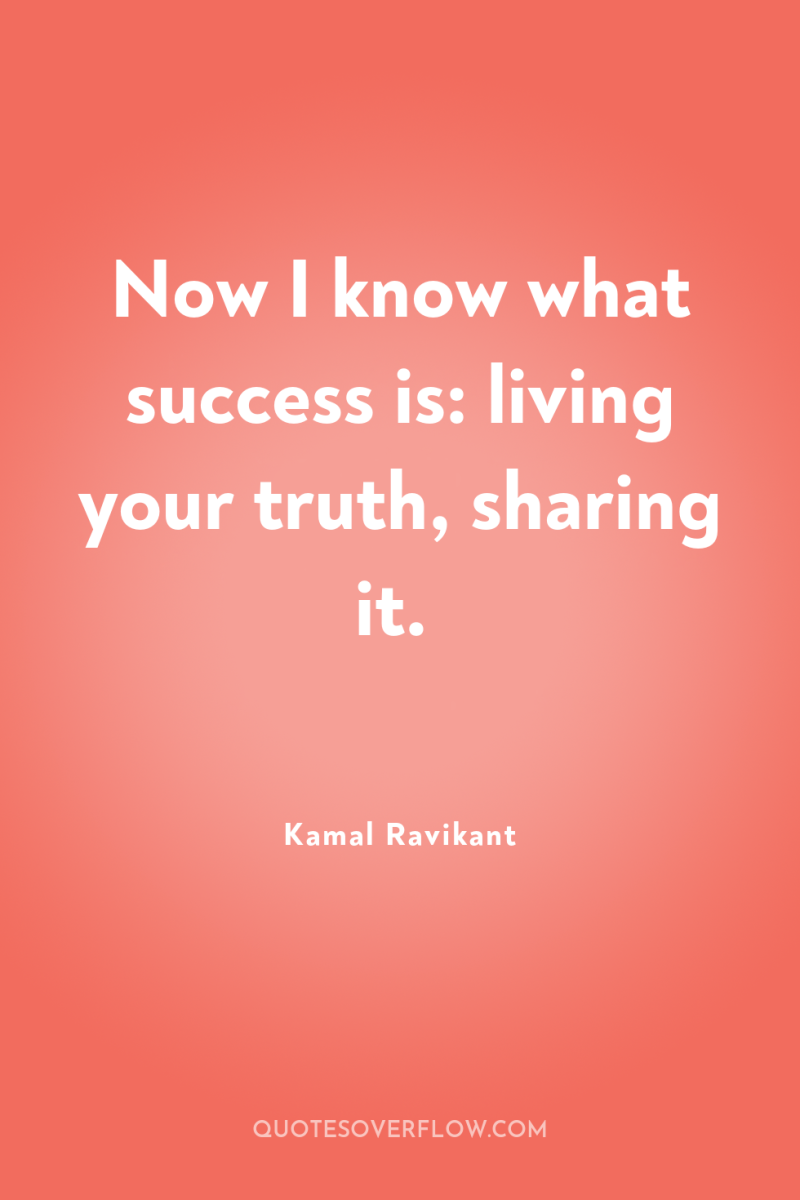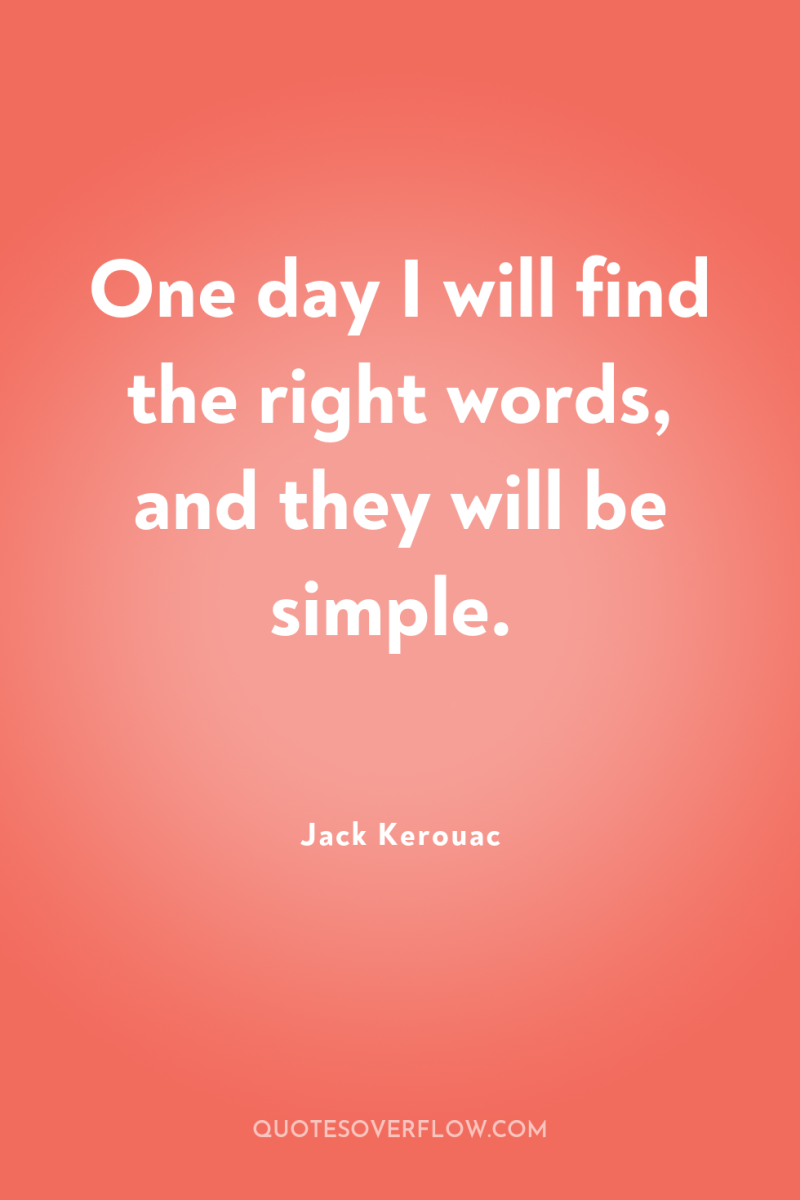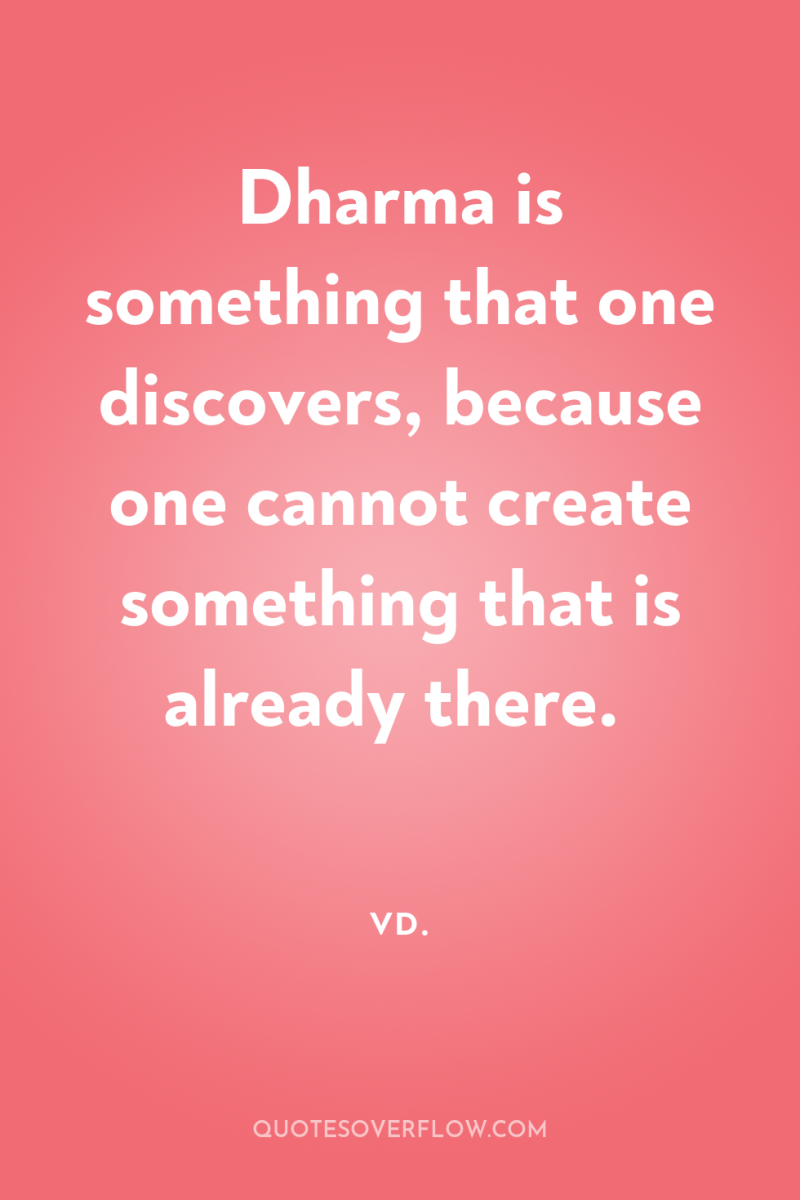
1
If you are unable to find the truth right where you are, where else do you expect to find it?Unknown

2
Now I know what success is: living your truth, sharing it.Kamal Ravikant

3
One day I will find the right words, and they will be simple.Jack Kerouac

4
Dharma is something that one discovers, because one cannot create something that is already there.VD.
5
What is the nature of the Self (Soul)? To ‘see’ the dharma (function) of everything, to see ‘who is performing what function, and how that function is being performed.’ To ‘see’ it, is called the function of the Self (Soul).Dada Bhagwan
6
That which frees one from bondage is the right religion.Dada Bhagwan
7
Only one kind of religion cannot give peace to everyone. Whatever ‘degree’ one is sitting at, that ‘degree’ of religion he requires.Dada Bhagwan
8
Religion (Dharma) begins with an obliging nature.Dada Bhagwan
9
In India, we have a saying: 'Always look down, never look up, " he said. "When you are trying to determine where you stand in life, don't look upward at the rich people, the people with everything. Look downward at the people who have nothing, those begging on the street, those living in the slums. There's no end to looking up and feeling badly. And if you try to spit upward it only falls down upon your own face. Only by looking down do you understand your dharma.Alison Singh Gee
10
Whatever human endeavor we choose, as long as we live our truth, it is success.Kamal Ravikant
11
In a Zen retreat we have a format for working with these quicksilver changes: we sit with them, we pay attention to them.. Being steady with mindfulness as an anchor for all the changes we go through is the way we practice forbearance. And you can employ this same method anywhere anytime: just pay close attention to the details of what is going on internally and externally. Don't flinch, don't run away. Trust what happens. Take your stand there." (71) .Norman Fischer
12
How did I get 'IT'? - By crying, begging, yelping! - Any of this helping?Fakeer Ishavardas
13
Whole world is not looking for religion, it is looking for its own safe side.Dada Bhagwan
14
That what keeps us supported is dharma (religion).Dada Bhagwan
15
Where there is religion (religious following), there are no worries and where there are worries, there is no religion there.Dada Bhagwan
16
This stuff of a past not worthily lived is also medicine.Joan Halifax
17
Dharma is found because one cannot create what is already there.VD.
18
Dharma is something that one discovers because one cannot create something that is already there.VD.
19
Don’t worry, eventually everything falls into its rightful place.Fakeer Ishavardas
20
Never sit under a tree waiting for the apple to fall. Climb the tree, grab that apple! When it comes, never be inert and take your time, TIME TO MOVE!Tsem Tulku Rinpoche
21
Everyone can only succeed with their own Dharma.Anni Sennov
22
The Chinese ideograph for forbearance is a heart with a sword dangling over it, another instance of language's brilliant way of showing us something surprising and important fossilized inside the meaning of a word. Vulnerability is built into our hearts, which can be sliced open at any moment by some sudden shift in the arrangements, some pain, some horror, some hurt. We all know and instinctively fear this, so we protect our hearts by covering them against exposure. But this doesn't work. Covering the heart binds and suffocates it until, like a wound that has been kept dressed for too long, the heart starts to fester and becomes fetid. Eventually, without air, the heart is all but killed off, and there's no feeling, no experiencing at all. To practice forbearance is to appreciate and celebrate the heart's vulnerability, and to see that the slicing or piercing of the heart does not require defense; that the heart's vulnerability is a good thing, because wounds can make us more peaceful and more real–if, that is, we are willing to hang on to the leopard of our fear, the serpent of our grief, the boar of our shame without running away or being hurled off. Forbearance is simply holding on steadfastly with whatever it is that unexpectedly arises: not doing anything; not fixing anything (because doing and fixing can be a way to cover up the heart, to leap over the hurt and pain by occupying ourselves with schemes and plans to get rid of it.) Just holding on for hear life. Holding on with what comes is what makes life dear.. Simply holding on this way may sound passive. Forbearance has a bad reputation in our culture, whose conventional wisdom tells us that we ought to solve problems, fix what's broken, grab what we want, speak out, shake things up, make things happen. And should none of this work out, then we are told we ought to move on, take a new tack, start something else. But this line of thinking only makes sense when we are attempting to gain external satisfaction. It doesn't take into account internal well-being; nor does it engage the deeper questions of who you really are and what makes you truly happy, questions that no one can ignore for long.. Insofar as forbearance helps us to embrace transformative energy and allow its magic to work on us.. forbearance isn't passive at all. It's a powerfully active spiritual force, (67-70).Norman Fischer
23
This is what the path of Dharma is like. It's not that you have to do all the practices. It is sufficient to take just one of them, whichever one you really have an affinity with, and through practicing that one alone, for the rest of your life, you will achieve enlightenment. Whichever practice you choose doesn't matter; they are all valid methods for achieving enlightenment–if you practice. The key is to practice with diligence for the rest of your life.Dhomang Yangthang